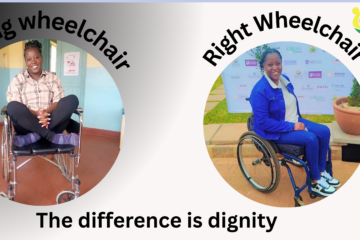“How do you do it?” they ask. “What’s the hardest part?”
I’ve been a paraplegic for years now, and I’ve learned that the answer isn’t straightforward. It’s not just about the physical limitations—the inability to walk, the constant reliance on a wheelchair. No, the true challenge lies in something deeper: asking for help.
At first, everyone is at your service. “Do you need anything?” they ask. But slowly, the novelty wears off, and you start feeling like a burden. Then slowly you start getting irritated. I mean how can I not reach the sink? Heck, how hard is it to pull my trousers up?
During recovery- that period where you are confused and worried about how you will navigate life without the use of your lower limbs that’s when physiotherapists come in. You undergo intense physiotherapy and adaptive lessons.
You are taught how to do the simplest of tasks like how to wear your socks. Your upper body is strengthened day by day so it can take care of your lower body. But trust me that is a hurdle to learn. It takes time especially if you are not in a well-equipped, modern hospital. But worse is when you are not ready to accept the fact that you cannot walk again. That makes learning hectic and it might take a year plus to be fully independent.
Lucky is a paraplegic who comes from a well-abled family. Your people will ensure they make everything wheelchair friendly for you.
But what about those who can’t afford wheelchair-friendly modifications? What if widening the door or building an accessible toilet is beyond reach? For me, coming from a humble background, these luxuries were elusive. Rashes from urine-soaked diapers became a painful reality. But still, I kept moving.
And then there’s the emotional toll. Two months, five months, six months and you begin to feel like a burden. You battle feelings of inadequacy, like a burden on your loved ones. How long does it take until you are comfortable enough to ask your parents for something too high for you to reach?
Yet, you persevere. Slowly you learn that if you bend slowly enough you can pick up something from the floor. Bit by bit you realize that if you twist yourself a certain way you can lift your pants. Somehow, you realize that it’s so easy to carry objects on your lap and maintain dignity. It’s a dance of resilience and vulnerability.
Imagine the chill of a cold shower—water cascading over your body, numbing your skin. But it’s not the temperature that stings; it’s the reason behind it. You see, I take cold showers not because I enjoy the icy shock or the spasms that follow, but because I dread asking for help.
Boiling water for a warm shower seems like a simple task, but for me, it’s a monumental hurdle. The thought of calling someone, of admitting my vulnerability, of saying, “Can you please heat water for me?”—it’s a weight on my chest. So, I endure the cold, shivering under the stream, just to avoid that moment of dependence.
The Unseen Struggle
I have asked most of my para friends. “Hey, how do you do this?” And they tell me Lucy I had to learn, I had to be innovative, I had to make it work.
Why though?
Is it because our families and friends are not supportive enough or is it that they don’t want to help us anymore? No, our families, friends, and loved ones are there. They are a gem and they would never let us down.
But here’s the secret: Paraplegics are masters of adaptation. We learn, we innovate, and we make it work. We twist, bend, and stretch—anything to avoid feeling like a bother. Our families love us unconditionally, but our minds play tricks on us. We’d rather strain than stress others.
Lately, I am changing my thinking. I am celebrating resourcefulness and redefining strength. Because being a paraplegic isn’t just about physical limitations; it’s about the indomitable spirit that keeps us moving forward. Truth is, we are not inadequate because we ask for help; we are resilient because we find ways to thrive despite our challenges.



5 Comments
Terry Mbugua · June 7, 2024 at 5:47 am
This soul is really talented nomatter the situation she works dedicate her time n effort to help others tht might be in her shoes n can’t let go of pain n tht being burden to people around and the society is their fault…. ❤️❤️❤️🙏Go go girl, I really impressed
Lucy · June 10, 2024 at 8:53 am
Thank you for your kind words dear one. We have to do this.
Ptah · June 7, 2024 at 1:44 pm
Nice piece
Lucy · June 10, 2024 at 8:52 am
Thank you 😍😍
Michael Oluwasegun Adesiji · June 17, 2024 at 12:21 pm
I think there is a need to educate the society better on love and equality.
To be honest, we seem depleted on these values already. This appears to be a challenge here in Africa but not so much for paraplegics living in some saner climes.